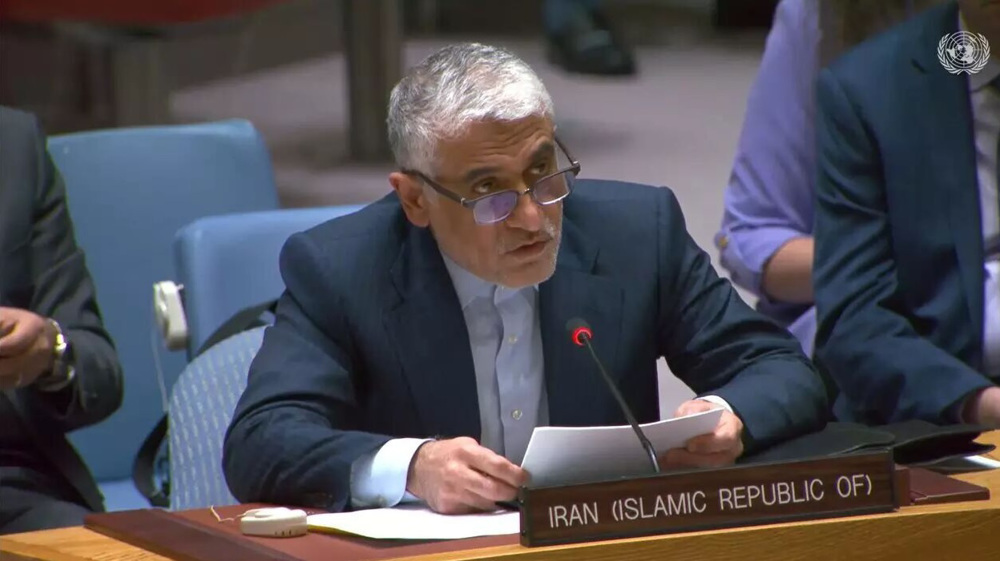Iran’s permanent ambassador to the United Nations has warned against Israel’s “military adventurism” in the region, noting that Tehran reserves the “inherent” right to respond to threats and attacks originating from the regime.
In a letter to the United Nations Antonio Guterres and the rotating president of the UN Security Council (UNSC) Yamazaki Kazuyuki on Thursday, Iran’s UN envoy Amir Saeid Iravani rejected the Israeli allegations and threats.
“While strongly warning about any military adventurism or malicious activities by the Israeli regime in the region, the Islamic Republic of Iran reserves its legitimate and inherent right, in accordance with international law and the United Nations Charter, to take all necessary measures to respond to any threat or attack originating from the Israeli regime against its national security and interest and its people,” he wrote.
His letter came in response to an earlier letter by Israeli foreign minister Israel Katz to the world body, claiming that Iran has escalated weapons deliveries to the Lebanese Hezbollah resistance movement.
“The accusations in the letter are entirely baseless and are categorically rejected. This letter represents yet another cynical attempt by the Israeli regime to deflect the attention of the international community from the ongoing egregious atrocities and acts of genocide committed by this apartheid regime against the Palestinian people in the Gaza Strip.
“It is also a misleading effort aimed at covering up and legitimizing Israel’s aggression against Lebanon and its continual breaches of international law, the United Nations Charter, and UNSC Resolutions 1559 (2004) and 1701 (2006) by leveling unfounded allegations against Iran,” the Iranian ambassador said.
“Iran also reaffirms the inherent right of the Syrian Arab Republic and Lebanon under international law to take all necessary measures in response to any threat or attacks and acts of aggression by the Israeli regime against their sovereignty, independence, and territorial integrity,” the Iranian diplomat pointed out.
The upsurge in Israel’s acts of aggression against Syria and Lebanon comes following the Tel Aviv regime’s onslaught against Palestinians in the besieged Gaza Strip.
Israel waged the devastating war on Gaza on October 7 after Hamas launched Operation al-Aqsa Storm in the occupied territories in retaliation for the Tel Aviv regime’s incessant crimes against Palestinians in the occupied West Bank.
Since the start of the aggression, the Tel Aviv regime has killed at least 30,800 Palestinians, mostly women and children, and injured 72,298 others.
Israel also frequently targets military positions inside Syria, especially those of the Lebanese resistance movement Hezbollah which has played a key role in helping the Syrian army in its fight against foreign-backed terrorists.
The Israeli military has also been carrying out attacks against the Lebanese territory since then, prompting retaliatory strikes from Lebanon’s resistance movement Hezbollah in support of the Palestinian people in the Gaza Strip.
The movement has vowed to keep up its retaliatory operations as long as the Tel Aviv regime continues its onslaught on Gaza.




